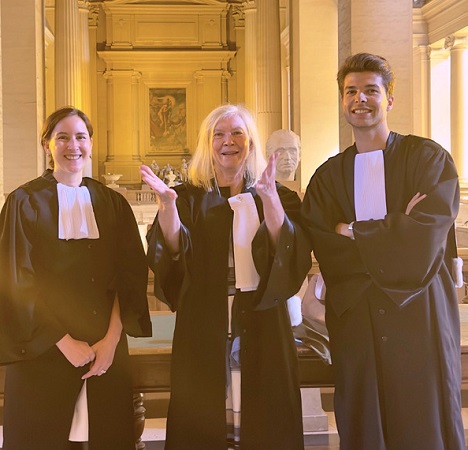On Sept. 14, 2023, the appeal process of the Climate Case, with 60,000 plaintiffs, began at the Brussels Palace of Justice, the largest lawsuit in Belgium’s judicial history – and even the largest climate case worldwide. The hearings – each Thursday and Friday – will last eight days over a four-week period.
In June 2021, vzw Klimaatzaak won the lawsuit against the four Belgian governments on almost all counts. Yes, the panel of judges stated afterwards, the 60,000 plaintiffs were right: the Belgian governments’ climate policy is so negligent that it amounts to serious human rights violations and dereliction of the duty of care. The European Human Rights Convention had been violated, in addition to Belgium’s Civil Code. But the judges did not go along with Klimaatzaak’s request to require governments to reduce carbon emissions by a certain percentage. Of course then you appeal. Of course you then ask the judge to take the next step. Of course you then hope for a clear framework. Not to take over the work of politics, but to help politicians make the only possible decision. Roger Cox, the lawyer who in the Netherlands brought the state and even Shell to their knees, said “In 99 percent of cases, of course, the judge should not issue a restraining order, but very occasionally he should, namely when there is only one solution and the injustice continues otherwise. If someone is wrongfully detained, the judge should not only rule that the detention is illegal, but also order that the person be released – otherwise the injustice continues. The same applies here. There is only one solution: emit less carbon, drastically reduce it, otherwise the gross violations of human rights will continue.”
